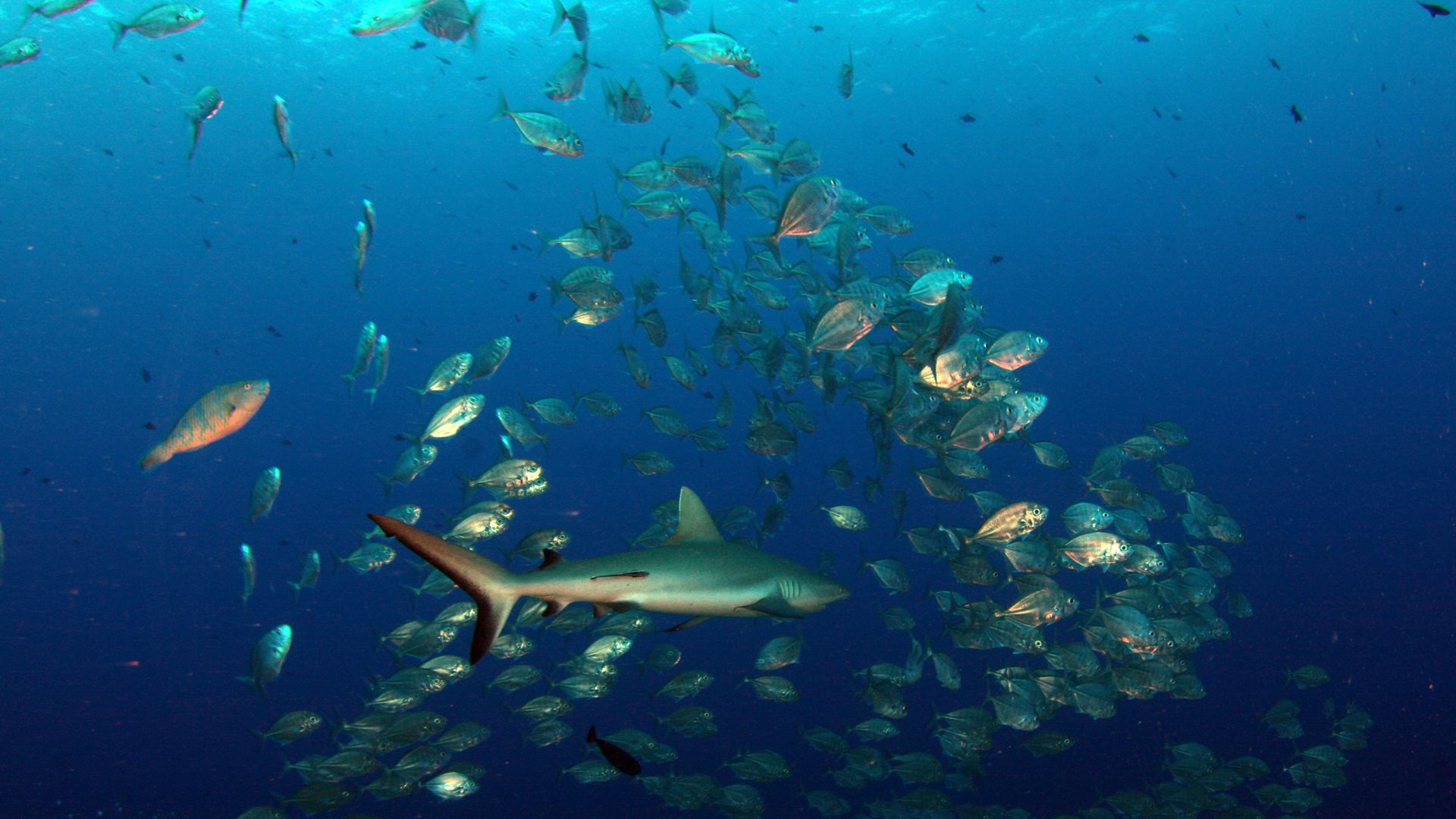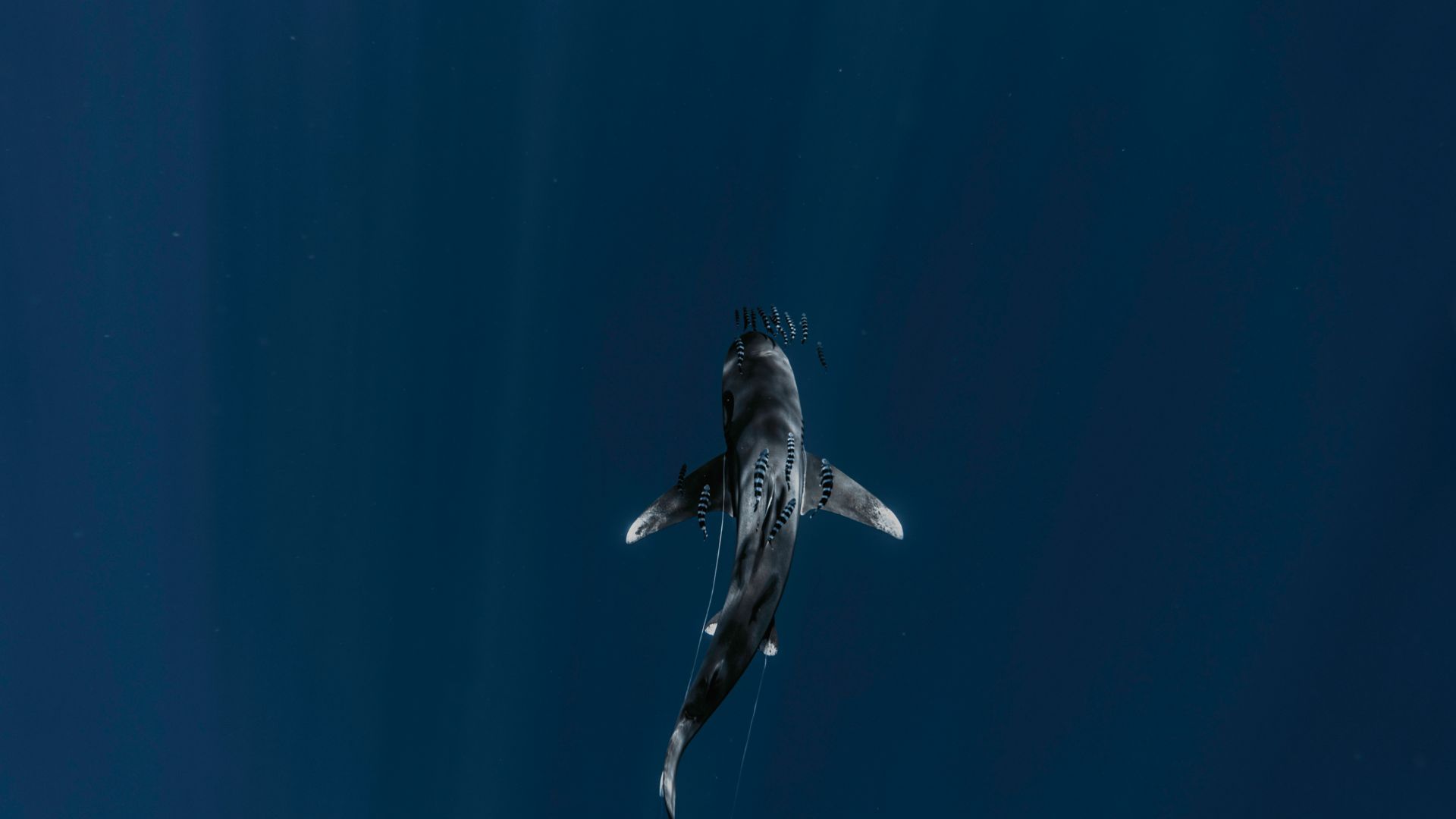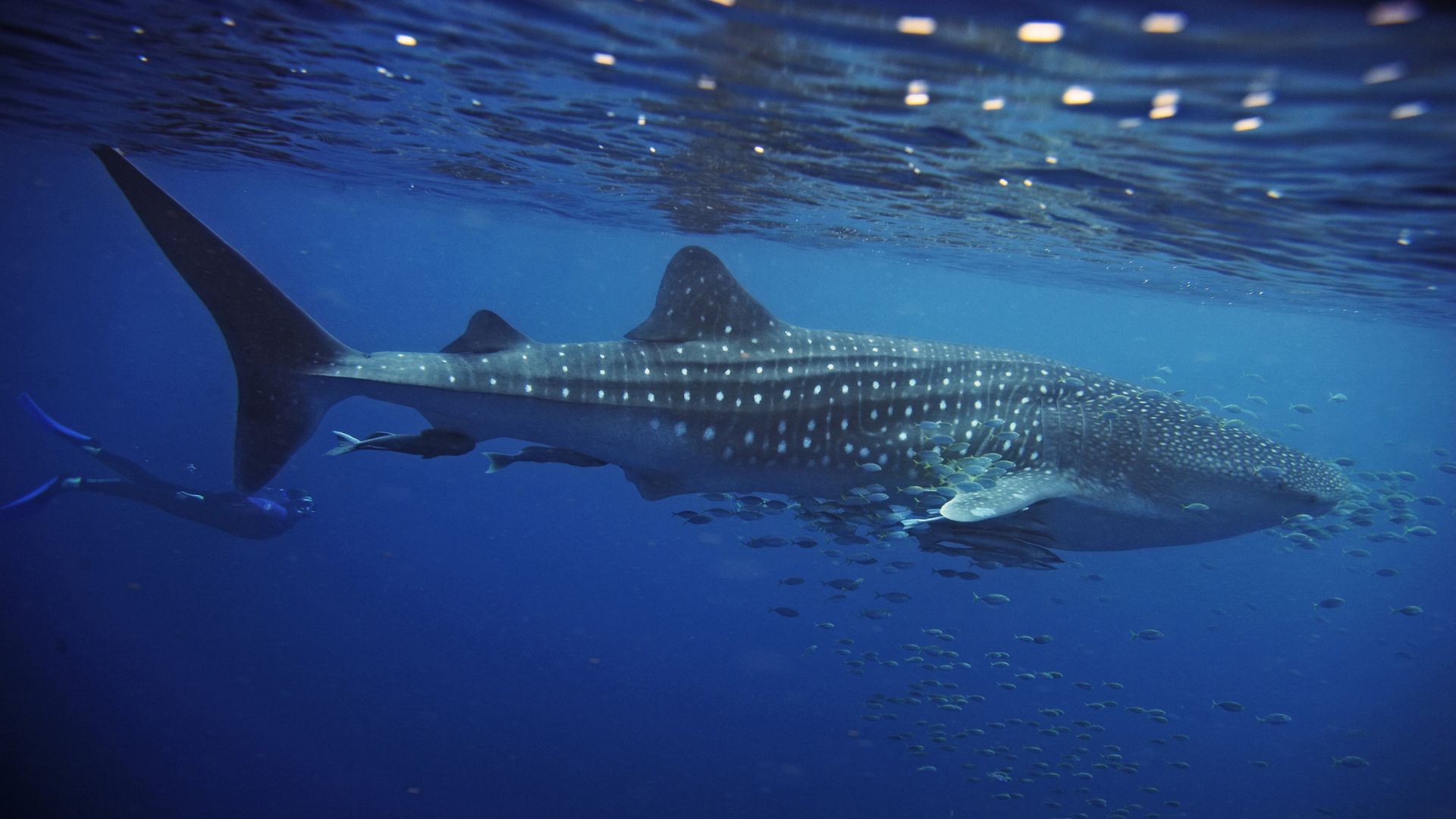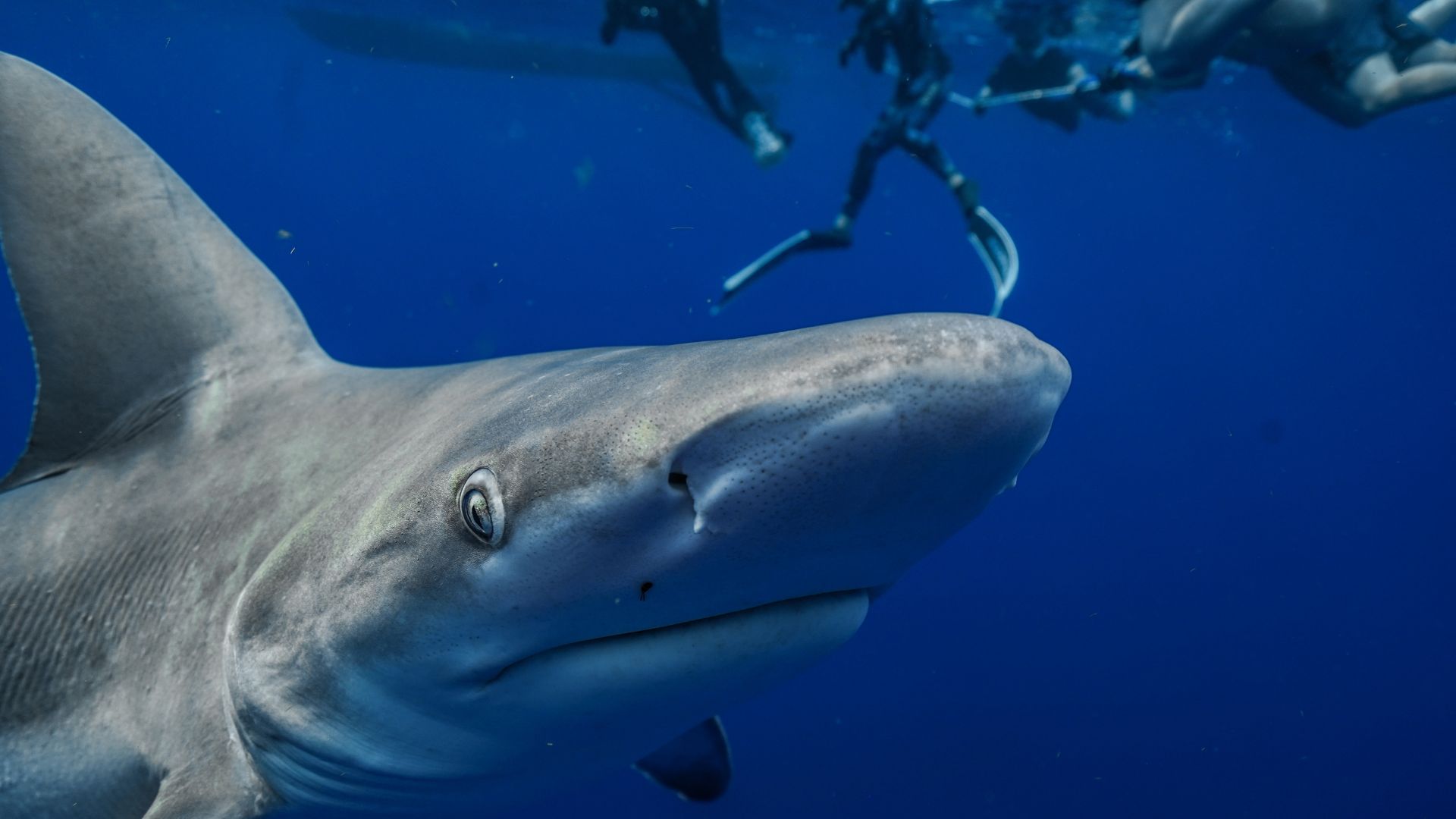
Shark conservation: Why protecting these predators matters
Sharks are often viewed with a sense of awe and fear, but their role in the ocean is far more significant than many realise. These apex predators are crucial to maintaining the health and balance of marine ecosystems. Without sharks, the delicate web of life in the ocean would unravel, leading to a cascade of negative effects that would impact both marine life and human communities. Shark conservation is not just important for preserving these majestic creatures; it is vital for the overall health of the oceans.
In this article, we’ll explore why protecting sharks matters, the threats they face, and what we can do to ensure their survival:
- The importance of sharks in the ocean ecosystem
- The major threats sharks face
- Shark fin trade
- The ecological role of sharks
- Conservation efforts
- Continued global conservation efforts ensure the survival of sharks
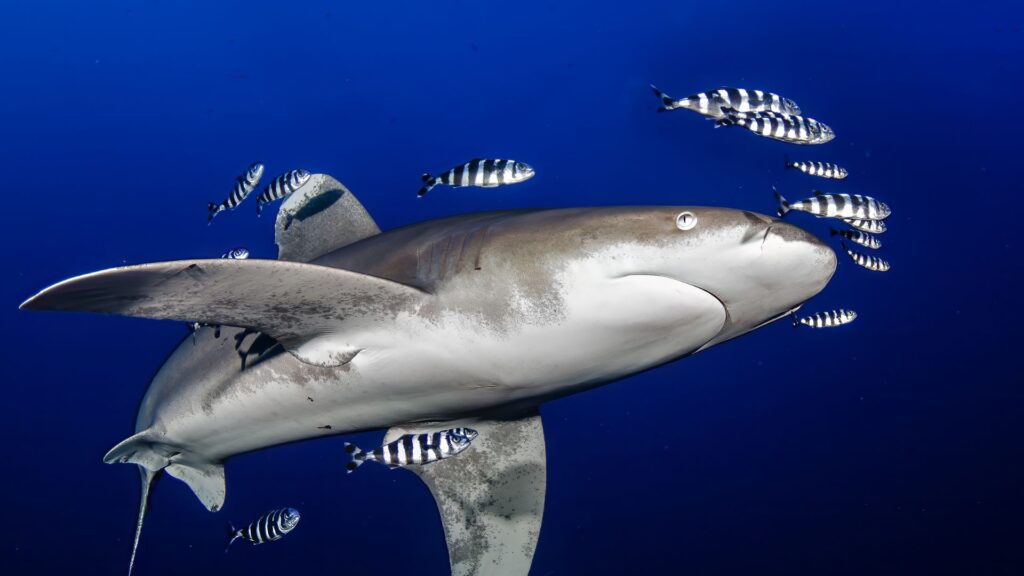
The importance of sharks in the ocean ecosystem
Sharks have been around for over 400 million years, and during that time, they’ve evolved into some of the most efficient and formidable predators in the world. These animals are not just fearsome hunters, they are also essential for maintaining the health of ocean ecosystems. As apex predators, sharks regulate the populations of other species, ensuring that no one group dominates the ecosystem. This role is critical in keeping the balance of marine life intact.
For example, sharks often prey on the weaker members of prey populations, such as sick or injured fish, which helps to maintain the overall health of the species they target. By removing these individuals, sharks prevent the spread of disease and help ensure that the healthiest, most resilient individuals survive to reproduce. This process, known as natural culling, is an important aspect of keeping marine ecosystems functioning smoothly.
Without sharks, the species they prey upon could experience unchecked growth, leading to overgrazing and depletion of vital resources like plankton and algae. This could trigger a chain reaction that would disrupt entire food chains, affecting everything from the smallest fish to larger marine mammals. By protecting sharks, we are not just ensuring the survival of one species, but the health of the entire ocean ecosystem.
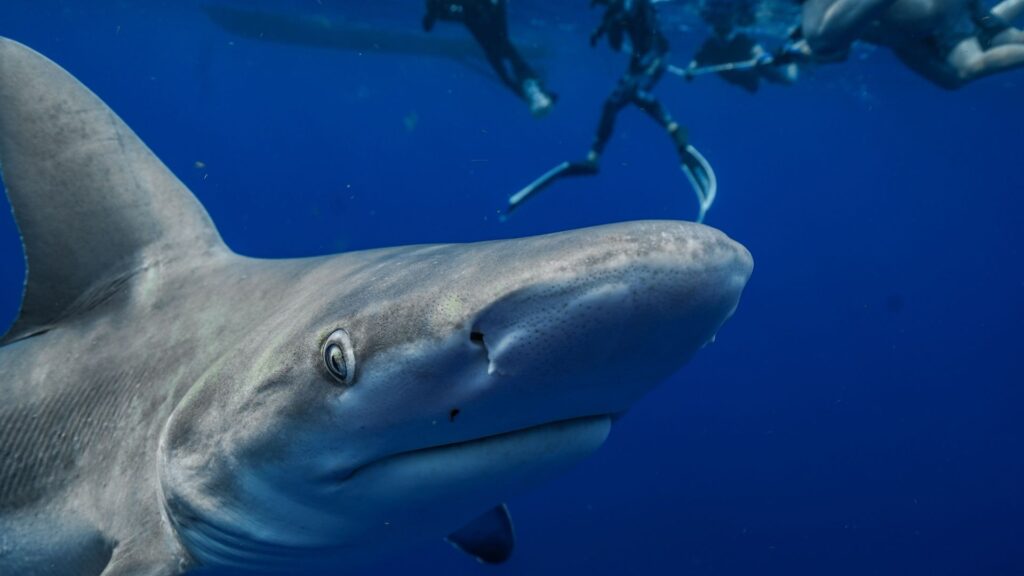
The major threats sharks face
Unfortunately, sharks face numerous threats that have led to a dramatic decline in their populations. Overfishing, habitat destruction, and the shark fin trade are just a few of the major factors putting these incredible creatures at risk.
Overfishing
Sharks are often caught as bycatch, meaning they are unintentionally caught in fishing gear meant for other species. Shark populations are also targeted directly by commercial fishing for their meat, skin, and fins. Due to their slow reproductive rates, sharks cannot replenish their populations as quickly as other fish species, making them particularly vulnerable to overfishing. It is estimated that millions of sharks are killed every year, and many species are now classified as endangered.
Habitat destruction
Sharks rely on healthy marine habitats, such as coral reefs, mangroves, and deep-sea environments, for feeding and breeding. However, human activities such as coastal development, pollution, and climate change are rapidly destroying these vital habitats. Coral reefs, in particular, are being devastated by rising ocean temperatures and ocean acidification, which reduces the availability of food and safe spaces for sharks to thrive.
Shark fin trade
One of the most devastating threats to sharks is the shark fin trade. Sharks are killed for their fins, which are considered a delicacy in some cultures, especially for shark fin soup. This trade is particularly harmful because sharks are often caught, their fins removed, and the rest of the body discarded back into the ocean, often while the shark is still alive. This wasteful practice not only reduces shark populations but also disrupts marine ecosystems by removing apex predators.
“The shark fin trade threatens the very balance of our oceans, and by ending it, we take a crucial step towards protecting the future of marine ecosystems and the survival of these magnificent creatures.”
1. What is the shark fin trade and why is it harmful?
The shark fin trade involves the harvesting of shark fins, often for use in shark fin soup, a delicacy in some cultures. Sharks are typically caught, their fins are removed, and the rest of the body is often discarded back into the ocean, frequently while the shark is still alive. This practice is harmful because it leads to massive declines in shark populations, disrupts marine ecosystems, and contributes to the extinction of vulnerable shark species.
2. How does the shark fin trade affect shark populations?
The shark fin trade significantly threatens shark populations worldwide. Sharks have slow reproductive rates, meaning they cannot replenish their numbers quickly enough to recover from the intense pressure of finning. As a result, many shark species are now endangered or critically endangered, and their declining populations can upset the balance of marine ecosystems, affecting other species and the health of the oceans.
3. What is being done to stop the shark fin trade?
Several international agreements, such as the Convention on International Trade in Endangered Species (CITES), have placed restrictions on the trade of shark fins, especially from endangered species. Additionally, many countries have implemented laws banning shark finning, and conservation organisations are working to raise awareness and reduce demand for shark fins. The promotion of sustainable alternatives and education about the ecological importance of sharks is also helping to combat this destructive practice.
The ecological role of sharks
As apex predators, sharks are essential for keeping marine ecosystems healthy and balanced. Their role in controlling prey populations has far-reaching effects on the entire food web. For example, sharks help regulate the numbers of fish and squid, which in turn affects the populations of plankton and other smaller organisms. Without sharks, some prey species could become overabundant, leading to overgrazing of vital marine resources, such as sea grass beds and coral reefs.
Declining shark populations have already begun to show negative effects on marine ecosystems. In areas where shark populations have been heavily reduced, researchers have observed an increase in the number of smaller predators, such as rays and smaller fish, which then feed on the species that would otherwise be controlled by sharks. This imbalance can result in the destruction of vital habitats like coral reefs, as overgrazing species consume too much algae, preventing the reef from recovering.
Furthermore, sharks are often important to other species as a source of food. When sharks die, their bodies provide nutrients for scavengers like deep-sea organisms, and their presence in the ecosystem helps maintain the natural flow of energy through the food chain. By protecting sharks, we are also protecting the complex web of life that depends on them.
Conservation efforts
There is hope for sharks, and many global and local conservation efforts are already underway to protect them. One of the most effective ways to protect sharks is through the establishment of marine protected areas (MPAs). These areas, where human activity is restricted or prohibited, allow shark populations to recover and thrive in a safe environment. Several countries and organisations are working to expand these protected areas, especially in regions where shark populations are under the greatest threat.
In addition to MPAs, there are international agreements and policies aimed at regulating shark fishing and reducing the demand for shark fins. The Convention on International Trade in Endangered Species (CITES) has placed many shark species on its protected list, limiting their trade and helping prevent further population declines. The shark conservation community also advocates for sustainable fishing practices and better enforcement of existing regulations.
While large-scale efforts are essential, individuals can also play a key role in shark conservation. Supporting organisations that promote shark protection, reducing the demand for shark products, and educating others about the importance of sharks are all ways to contribute to their conservation. Choosing sustainably sourced seafood and avoiding products that involve shark bycatch or finning can also help reduce the pressure on shark populations.
Continued global conservation efforts ensure the survival of sharks
Sharks are vital to the health of our oceans, and their conservation is crucial for maintaining marine biodiversity. The threats they face—from overfishing to habitat destruction—are significant, but through continued global and local conservation efforts, we can protect these magnificent creatures. By raising awareness, supporting sustainable practices, and working together to safeguard their habitats, we can ensure that sharks continue to thrive for generations to come.
Let’s recap what we’ve learned in today’s article:
- Sharks are apex predators that help maintain the balance of marine ecosystems by controlling prey populations, ensuring the health of other species and habitats.
- Overfishing, habitat destruction, and the shark fin trade are major threats to shark populations, leading to declines in species numbers and disrupting marine ecosystems.
- Sharks regulate the populations of fish and other marine species, which helps prevent overgrazing of vital resources like sea grass and coral reefs, maintaining ocean health.
- Global efforts like marine protected areas, international agreements, and sustainable fishing practices are essential for shark protection, but more work is needed to address these threats.
- Supporting shark conservation organisations, reducing demand for shark products, and choosing sustainably sourced seafood are ways individuals can contribute to protecting sharks and ocean health.
The survival of sharks is not just about preserving a single species, but about protecting the delicate balance of life in the oceans. Protecting sharks is protecting our future.
